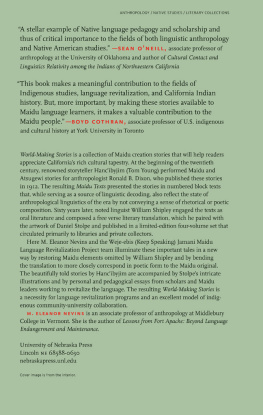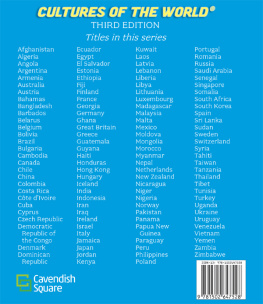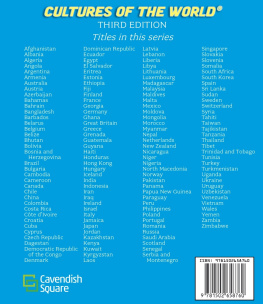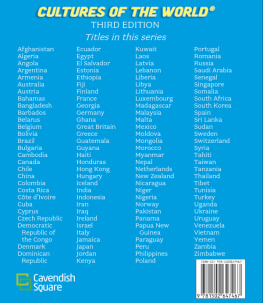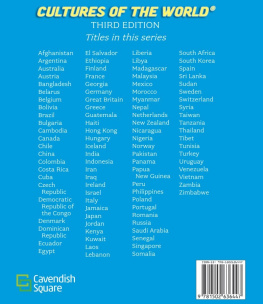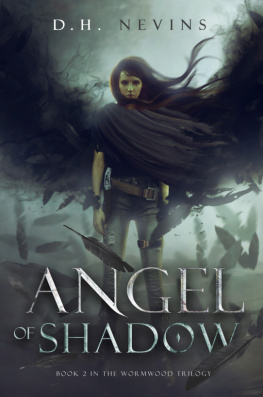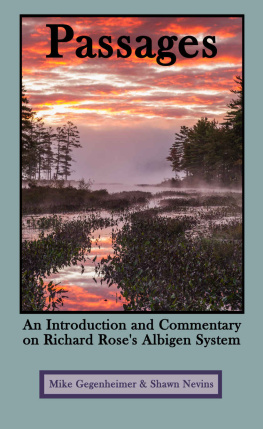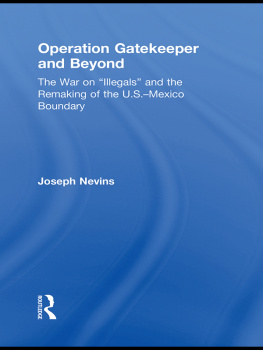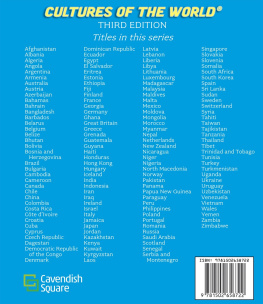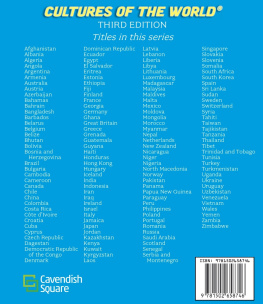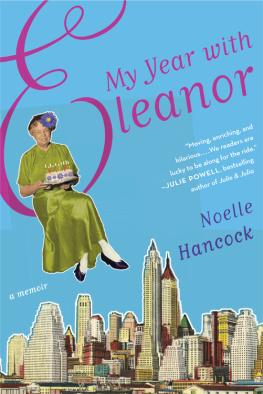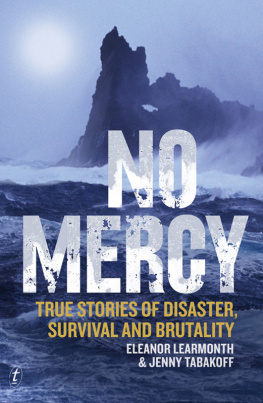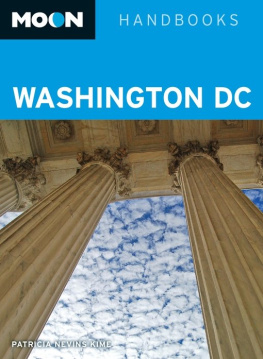M. Eleanor Nevins - World-Making Stories
Here you can read online M. Eleanor Nevins - World-Making Stories full text of the book (entire story) in english for free. Download pdf and epub, get meaning, cover and reviews about this ebook. year: 2017, publisher: University of Nebraska Press, genre: Home and family. Description of the work, (preface) as well as reviews are available. Best literature library LitArk.com created for fans of good reading and offers a wide selection of genres:
Romance novel
Science fiction
Adventure
Detective
Science
History
Home and family
Prose
Art
Politics
Computer
Non-fiction
Religion
Business
Children
Humor
Choose a favorite category and find really read worthwhile books. Enjoy immersion in the world of imagination, feel the emotions of the characters or learn something new for yourself, make an fascinating discovery.
- Book:World-Making Stories
- Author:
- Publisher:University of Nebraska Press
- Genre:
- Year:2017
- Rating:3 / 5
- Favourites:Add to favourites
- Your mark:
- 60
- 1
- 2
- 3
- 4
- 5
World-Making Stories: summary, description and annotation
We offer to read an annotation, description, summary or preface (depends on what the author of the book "World-Making Stories" wrote himself). If you haven't found the necessary information about the book — write in the comments, we will try to find it.
World-Making Stories — read online for free the complete book (whole text) full work
Below is the text of the book, divided by pages. System saving the place of the last page read, allows you to conveniently read the book "World-Making Stories" online for free, without having to search again every time where you left off. Put a bookmark, and you can go to the page where you finished reading at any time.
Font size:
Interval:
Bookmark:


This book is a work of fiction.
Names, characters, places, and incidents either are productsof the authors imagination or are used in a fictional setting. Any resemblance to actual events or locales or persons, living or dead, is entirely coincidental .
2017 by the Maidu Summit Consortium
All rights reserved Manufactured in the United States of America

This book is published as part of the Recovering Languages and Literacies of the Americas initiative. Recovering Languages and Literacies is generously supported by the Andrew W. Mellon Foundation.
Library of Congress Control Number: 2017942531
Set in Huronia by Tseng Information Systems, Inc.
The publisher does not have any control over and does not assume any responsibility for author or third-party websites or their content.
This book is dedicated in loving memory to Farrell Cunninghamjatam (19762013), who planted and grew our work with us at Weje-ebis Maidu.
The vision of my brothers existence was, and is still, brilliant! Let his light so shine in memory of his lifes work. There is no one who is comparable to his gifts of knowledge, to his strength as a leader. Forever in my heart.
The Weje-ebis Maidu project team requests that readers of this book respect the expectation among the Maidu community concerning the names of the deceased. If speaking Farrell Cunninghams name aloud, follow with jatam (pronounced yah-tam).
Amm, mjdym ttyty kymdom | Thereupon, being people who have |
Myjkkapem kdom kan, | This place has a name, |
Hncibyjim , spoken in 1902 |
ACKNOWLEDGMENTS
The Weje-ebis project team gratefully acknowledges financial support from the Administration for Native Americans, from the Mellon Foundations Recovering Languages and Literacies of the Americas, from Middlebury Colleges Undergraduate Research Office, and from research funds from Middlebury College Dean of Faculty. We also gratefully acknowledge institutional support from Susanville Indian Rancheria in administering the ANA grant, Middlebury College for supporting research and writing, Maidu Intertribal Language Summit (and Donna Clark, who financially supported that effort) for providing a forum for dialogue, and the Maidu Summit Consortium for acting as copyright holder of the work. In addition, we wish to thank Pat Kervick of the archives of the Peabody Ethnological Museum for providing us with copies of Roland Dixons notebooks, and Jacque Sustrand, the director of the University of Nevada Reno Special Collections, for help accessing and imaging the Shipley and Stolpe volumes. We thank Ilze Akerberg of Indiana University Archives of Traditional Music for providing sound recordings of songs sung for Roland Dixon in 1902 by Tom Young and Bill Reeves, as well as Andrew Garret at the UC Berkeley Survey of California and Other Indian Languages for access to William Shipleys field recordings.
Thanks to the estate of William Shipley for providing us with Bills unpublished lessons in Maidu and for permission to publish them for the first time here. We also thank the estate of William Shipley for permission to republish his transcriptions, transliterations, and literary translation and for permission to adapt, alter, and re-present these as needed in service of Maidu language learning. We thank Daniel Stolpe for permission to similarly adapt and republish his original artwork for presentation in an affordable paperback. We are grateful to Wilhelmina Ives, elder and Maidu language keeper, for guidance on key issues of translation and place. Thanks to Jim Bauman for advice on language pedagogy and for establishing an online Maidu lexicon from Shipleys text collection and for continuing support via the Maidu site in OurLanguage.org.
We also recognize four undergraduate research assistants at Middlebury College. Thanks to Sophie Bufton and Anna Mullen for recording, interviewing, and photographing accounts of Maidu places with Maidu community members. We also thank Maddie Gilbert, who checked parts 1 and 2 of Shipleys literary transcription and translation against Dixons text collectionand helped restore sentence-by-sentence correspondence and omitted lines. Thanks to Maddie Cochrane, who, with the guidance of project participants, rendered the map at the front of this book that locates key Maidu places with respect to widely recognized landmarks and towns on the shared indigenous-settler landscape. Thanks to Mari Price, Sociology and Anthropology coordinator for typing up Shipleys lessons on reading and pronouncing Maidu for inclusion in this volume. A warm thank you to Matt Bokovoy and Heather Stauffer of the University of Nebraska Press for seeing this project through from beginning to end.
CONTRIBUTORS
18991905
Tom Young / Hncibyjim (Genesee CA )
Roland Dixon (Cambridge MA )
Hiriam Kelley (Round Valley CA )
Dorius Leon Spencer (Genesee CA )
Billi Preacher (Chico CA )
George Barber (Chico CA )
Mike Jefferson (Chico CA )
Pouissey (Chico CA )
Mary Azbill (Chico CA )
Henry Azbill (Chico CA )
Bill Reeves (Mooretown CA )
19552003
Maym Hannah Gallagher (Paynes Creek CA )
Lena Thomas Benner (Susanville CA )
Roxie Peconom (Susanville CA )
Dan Williams (Quincy CA )
Leone Morales (Susanville CA )
George Peconom (Susanville CA )
Marie Potts (Sacramento CA )
William Shipley (Santa Cruz CA )
Daniel Stolpe (Santa Cruz CA )
20122014
Farrell Cunningham (Susanville CA )
Donna Clark (Susanville CA )
Melany Johnson (Westwood CA )
Kenneth Holbrook (Sacramento CA )
Paul Cason (Sacramento CA )
Dan Manning (Greenville CA )
Shiwaya Peck (Greenville CA )
Wilhelmina Ives (Greenville CA )
Marybeth Nevins (Middlebury VT )
Jim Bauman (Washington DC )
Ruth Rouvier (Sacramento CA )
World-Making Stories
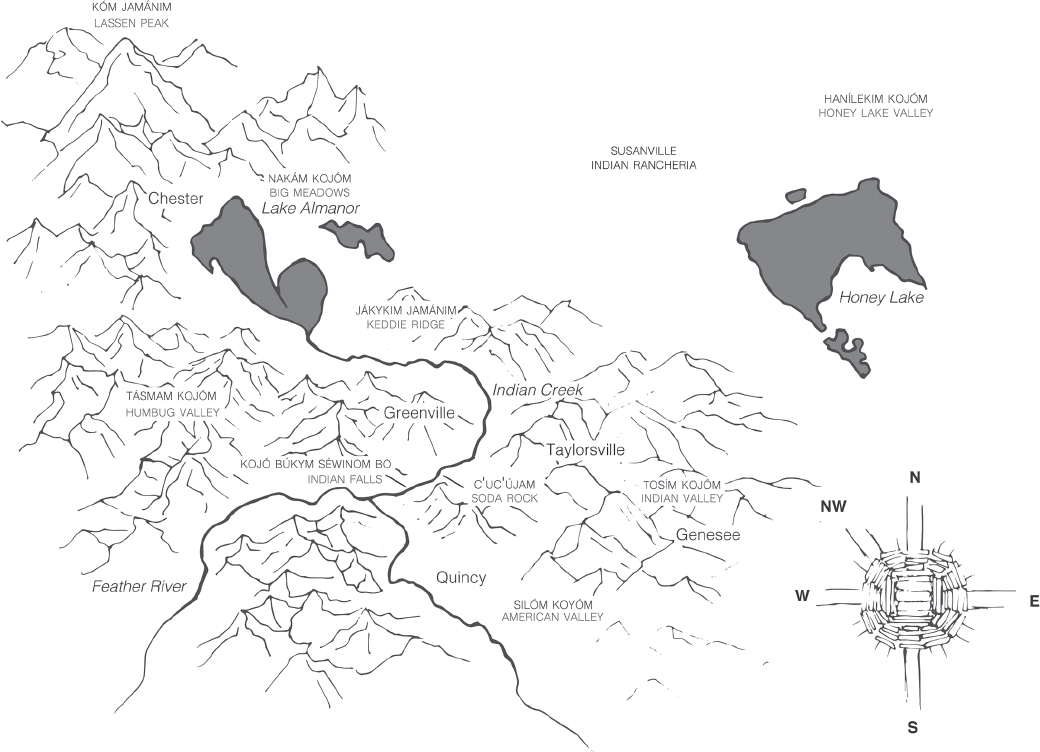
Maidu Places and Stories on a Shared California Landscape. Map created by Weje-ebis (Keep Speaking) Maidu team with support from the Middlebury College Undergraduate Research Office and Digital Liberal Arts Initiative.
Introduction
M undi bsmaamkano, acjam. | You shall remain here, acjam. |
Font size:
Interval:
Bookmark:
Similar books «World-Making Stories»
Look at similar books to World-Making Stories. We have selected literature similar in name and meaning in the hope of providing readers with more options to find new, interesting, not yet read works.
Discussion, reviews of the book World-Making Stories and just readers' own opinions. Leave your comments, write what you think about the work, its meaning or the main characters. Specify what exactly you liked and what you didn't like, and why you think so.

